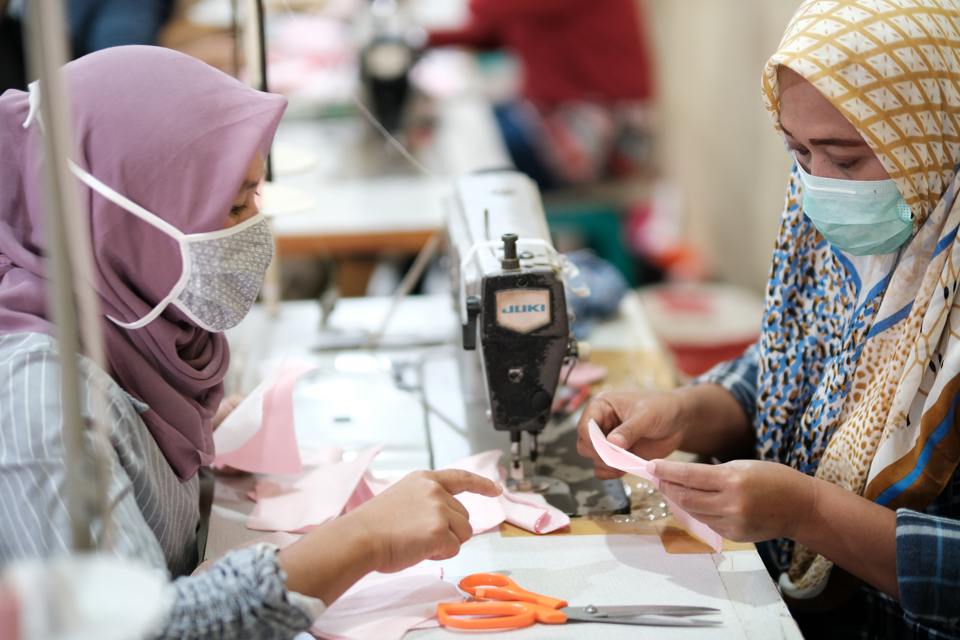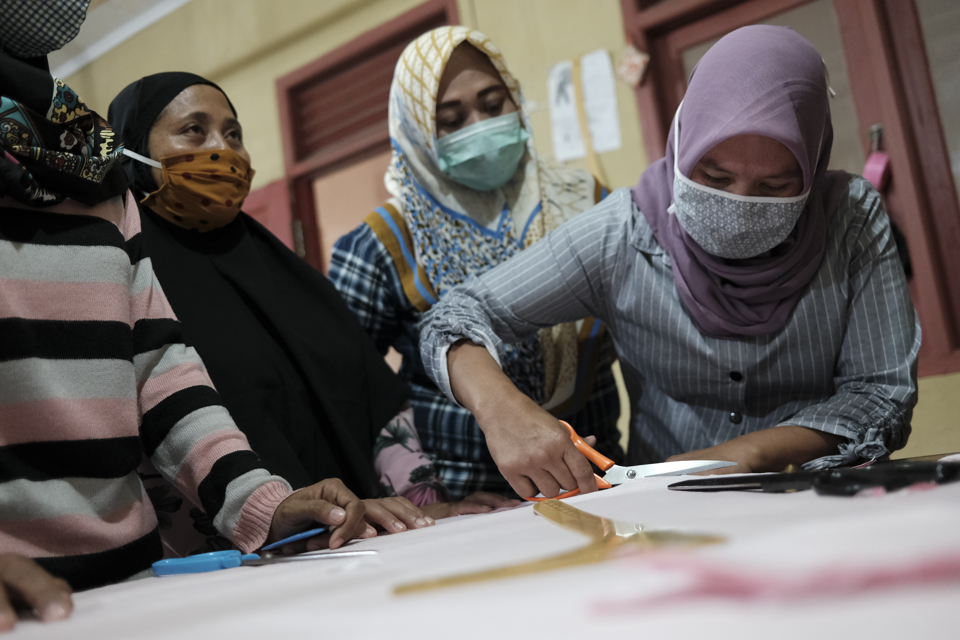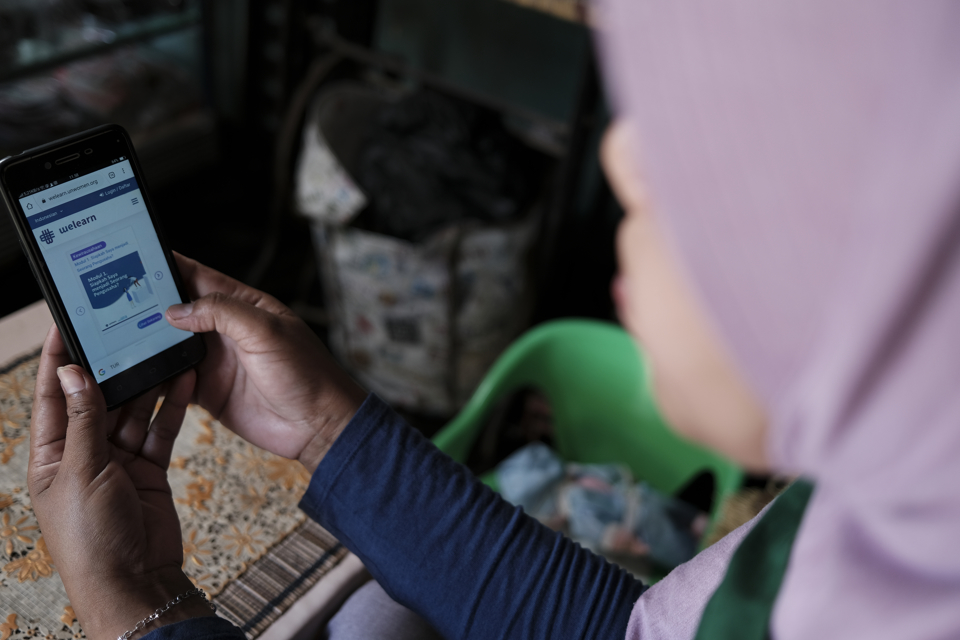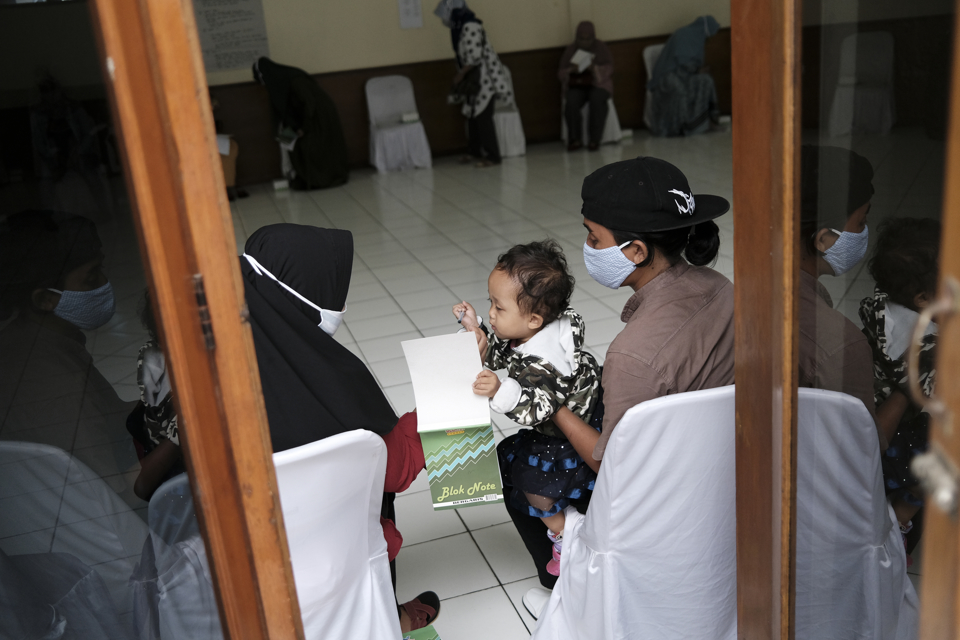Cash-for-Work Programme Empowers Women Impacted by COVID-19
Date:

Women are the key driving force of the garment industry. According to ILO’s Better Work Indonesia, women account for approximately 80 per cent of the garment sector workforce in Indonesia. However, mobility restrictions caused by the COVID-19 pandemic are have badly impacted key sectors of export-oriented manufacturing, including the garment sector. Indonesia’s Textile Association (API) in April 2020 reported that COVID-19 temporarily halted the operations of 80 percent of textile and textile products companies in Indonesia.[1]
As a result, women garment workers have lost their jobs and livelihoods due to the closure of factories.

Responding to these challenges, UN Women and Yayasan Care Peduli have formed a partnership to support groups of women garment workers in Sukabumi, West Java province – major hub for the Indonesian garment sector – along with other groups of women impacted by COVID-19 through the provision of cash based interventions, which include cash-for-work as well as cash and voucher assistance with the support of the United Nations COVID-19 Response and Recovery Multi-Partner Trust Fund (UN COVID19 MPTF) and the Government of Japan.
The design and prototyping of the gender-responsive cash-for-work programme is innovative because it challenges the typical cash-for-work programme, which focuses on labour-intensive infrastructure development. It will benefit 300 women beneficiaries. Sixty ex-garment workers who lost their jobs will receive training to sew masks and be provided with the sewing machines, materials, and supplies afterwards. The other 240 women impacted by the COVID-19 will be recruited as the marketers.

The cash-based intervention helps them secure a temporary source of income to survive financially for three months, starting from January 2021 while they receive training in cloth mask production and entrepreneurship skills. This training will empower them to start up or enhance their business in order to secure better, more sustainable income in a longer term.
Eni, a resident of Pondok Kaso Village in Sukabumi, lost her job at a garment factory due to closure. As the main provider for her family, including her parents who live with her, Eni’s ability to generate income is crucial for their livelihood and wellbeing. “The pandemic has been challenging for me. I lost my job, but I still have to pay for my mother’s medical treatments. The cash-for-work programme has opened an opportunity for me to generate new income,” she said.
“Cash-for-work has helped me gain new skills. I also got to meet with other women here that faced similar challenges and we support each other,” said Icoh, another participant of the programme. “The income that I receive will be used to cover my daily needs and some of it will be put away for savings. I plan to join a cooperative and hope to start my own sewing business someday.”
The programme has gained support from the local government of Sukabumi District, which provide local encouragement for women’s engagement in the project’s implementation and the frameworks to continue interventions once the project ends, and fostered an enabling environment for women entrepreneurs to grow.
“We are optimistic with the programme as it has become an income solution for these women, and an opportunity for our society to recover from the COVID-19 crisis. The programme is also aligned with our own programme to increase the capacity of the community,” said Feriana Rahman, the Village Secretary of Pondok Kaso, Sukabumi.

This gender-responsive cash for work programme also focuses on addressing the gender dynamics within the household by engaging male partners of the women beneficiaries in the training to promote gender awareness and social norm change for a more equal relationship within the household. The cash for work programme aims to provide valuable, insightful lessons on the design and implementation of sustainable cash-for-work schemes that meet the needs of women. These lessons can be shared widely, including to policy decision makers for potentially scale up of a larger scale pilot programme.
---------------------------------------
[1] https://betterwork.org/2021/02/09/indonesia-updates/